There is a stark difference between a caring and controlling partner, which many of us are not aware of. To understand how dangerous a controlling relationship can be, look at this study on emotional abuse which states, “Therapists and counselors should pay special attention to controlling, isolating behaviors of partners as precursors to emotional abuse.”
Let’s take the case of Sarah, a vibrant 28-year-old fashion designer who used to love spending time with her friends and family. However, her life took a turn when she crossed paths with Mark (both names changed), a driven entrepreneur. Sarah had no idea he’s such a controlling person. Constantly texting and inquiring about her whereabouts, he insists that her every free moment be devoted to him. She feels trapped, anxiety-ridden, and as though she’s navigating a minefield. This is an unmistakable instance of a controlling relationship.
In this article, Anushtha Mishra (MSc in Counseling Psychology) with a specialization in trauma, relationships, depression, anxiety, grief, and loneliness explains what controlling behavior is and how to spot the warning signs. These insights will help you understand when it’s time to end a controlling relationship when you see it in contrast to healthy relationships and a caring partner.
What Is Controlling Behavior In A Relationship?
Table of Contents
Controlling behavior in a toxic relationship involves actions or attitudes where one partner seeks to dominate, manipulate, or restrict the other. It can come in various forms, like constantly checking up on you – This is overlooked in the initial stages of a controlling relationship because it feels romantic to many. Then they tell you what you can or can’t do, they keep tabs on your social media accounts and email accounts, and even make you feel guilty for your choices.
Controlling behavior leads to a lack of trust, freedom, and mutual respect in a relationship, causing severe emotional exhaustion. Controlling partners often dictate how their partner thinks, feels, or acts. They might isolate you from friends and family, insist on knowing every detail of your life, use tactics like emotional manipulation, and even resort to physical threats. Many controlling relationships involve emotional abuse, making the victim feel trapped, anxious, or constantly on the edge.
What Are The Prominent Signs Of A Controlling Relationship?
Controlling relationships are emotionally abusive and can have a devastating impact on the victim. Controlling partners employ a range of tactics to assert dominance, including manipulation, threats, and intimidation. Here are a few signs that suggest you might be trapped in a relationship where your partner dominates you and exercises an unhealthy level of control. If you’re wondering what is considered controlling in a relationship, read on.
1. The controlling partner isolates you from loved ones
One of the most prominent and debilitating signs of a controlling husband, wife, or partner is that they might want to keep you all to themselves. They could make you spend less time with your friends and family, making you feel like you’re all alone on an island, cut off from the people who care about you.
Now I understand it’s natural to question, “Is he controlling or insecure about my growing support network?” or “Is she controlling or scared that she’s losing me?” But the answer lies in nuance. They can be insecure and, therefore, exhibit controlling behaviors but that doesn’t mean it’s justified.
A few ways your partner can isolate you from your loved ones include:
- They may discourage you from talking to your friends and family, making it difficult to maintain regular contact
- They might pick fights or make a big deal out of your desire to spend time with your loved ones
- They may dictate how you spend your time, leaving little room for visits or outings with friends and family
- They can use this isolation to exert more control over you, ultimately making you feel like they are your only option for companionship
Related Reading: Feeling Lonely In A Relationship – 15 Tips To Cope
2. Constant criticism is the way they talk
One of the early signs of a controlling man or woman in toxic relationships is that they might take on the role of a ‘critique master.’ This means one partner will find faults in the other partner’s actions and personality. On the receiving end, this is how you’d feel:
- Your partner makes you feel stupid
- They make you feel like you can never measure up
- Their never-ending list of complaints and constant criticism wears down your self-esteem and confidence in doing the most basic things
3. Limited personal freedom is a common trait of toxic, manipulative relationships
Personal freedom and alone time can feel like a disappearing act in such a relationship. It’s as if the controlling person holds the strings to your every move, and you need their approval for even the smallest decisions. Want to go out with friends? Seek their permission. Thinking about pursuing a new hobby? You’d better check with them first.
A Reddit user shared the signs of a controlling husband, “Any time I do ANYTHING for myself, he very subtly finds a way to make me feel guilty the whole time. I have NO LIFE outside of being his wife and a mother. And he’s trained me to feel guilty when I make an attempt to.”
This constant dynamic leads to a lack of personal space and can make you feel like you’re living under constant surveillance, with every choice subject to their judgment and control. Unable to make choices for yourself, you feel stifled, suffocated, and helpless. It’s crucial to recognize this as a clear sign of a controlling relationship.
4. Your partner uses guilt as a weapon
If you find yourself guilt-tripping too frequently, it’s a definite red flag in a relationship. Controlling people often use guilt as a tool to manipulate their partners into feeling bad for things that aren’t their fault. Whether it’s a minor disagreement or a simple decision, they have a way of making their partner carry the burden of guilt, making them feel like they’re constantly in the wrong.
Your partner can manipulate you into feeling guilty by:
- Blaming you for things that go wrong, even if you have no control over the situation
- Playing the victim card to make you feel responsible for their unhappiness or problems
- Bringing up past mistakes repeatedly, never allowing you to move on, and creating a sense of ongoing guilt
- Using silent treatment as a way to punish you and make you feel guilty
Related Reading: Exposing A Narcissist – What You Should Know
5. What is considered controlling in a relationship? When a partner invades your privacy
In toxic, manipulative relationships, controlling people can create an atmosphere of surveillance. They insist on full and constant disclosure, which means they want to know every detail of your life and whereabouts, leaving you with little room for independence and personal boundaries. Here’s what invasion of privacy looks like:
- They check your messages: They want to see your texts, emails, or social media messages, making you feel like you have no personal space
- They question every move: They ask you about your whereabouts, whom you talked to, and what you did as if you’re under a spotlight of scrutiny
- They demand to know your thoughts: They might press you to reveal your innermost thoughts and feelings, making you feel like your mind isn’t your own
- They track your steps: They could go to extreme measures such as tracking your location through your phone, to ensure they always know where you are
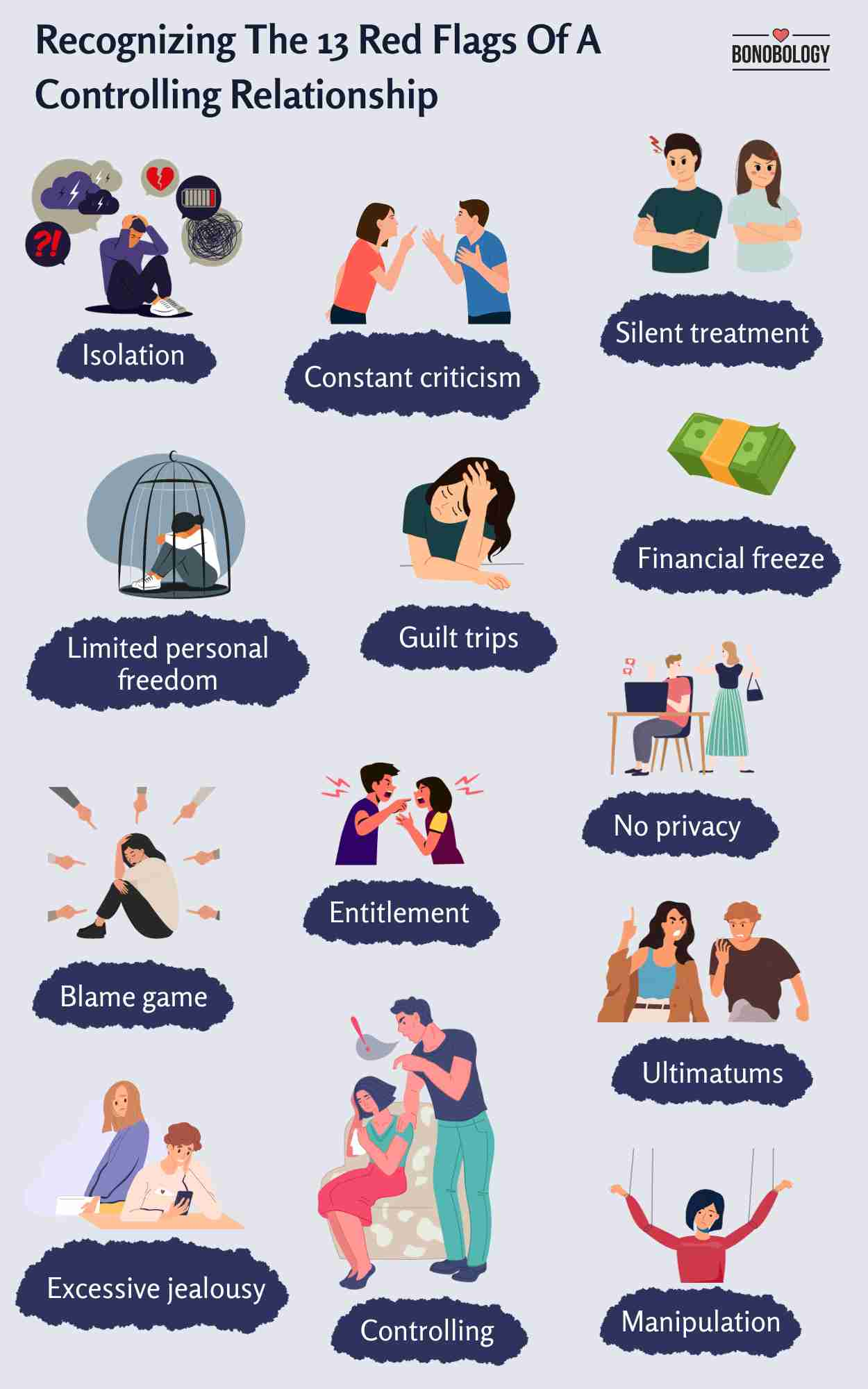
6. A partner like this feels entitled enough to crush your dreams
In a healthy partnership, both individuals have equal say and autonomy. But a dominating partner might not be very supportive of your dreams. The reasons or excuses could be any: Their socioeconomic status, fear of losing control over you, insecurity, etc. Instead of encouraging you, they would put down your goals and discourage you from pursuing them. You may feel like your aspirations are being crushed. Worse, you’d start second-guessing your dreams and capabilities too.
7. When there are issues of control in a relationship, emotional ups and downs are inevitable
In a controlling relationship, your partner can manipulate your emotions, much like a rollercoaster ride that leaves you feeling dizzy and exhausted. Healthy relationships, however, don’t leave you hanging. Control in a relationship can take various forms:
- The overbearing partner evokes intense emotions like anger, sadness, or anxiety
- The relationship may be marked by frequent emotional highs and lows, making it hard to find stability
- Dealing with these emotional rollercoasters can be emotionally exhausting, leaving you drained
- Your partner’s actions may be unpredictable, making it hard to anticipate their reactions. They might go from being sweet and loving one moment to angry and critical the next, keeping you on edge
- They might resort to emotional or physical abuse when you least expect it
Related Reading: Tips To Practice Emotional Attunement To Transform Your Relationships
8. They even control your finances
A 2023 survey states that 22% of respondents experienced financial abuse in a past relationship. Around 33.9% of them stayed in the abusive relationship as they had no money, 46.8% stayed because of the children, 21% were afraid of their partner.
When your lover makes you dependent on them for financial support, it feels as if you’re tethered to a leash. They might gain complete control over your income and expenditures, leaving you with little financial independence. Simple decisions, like buying groceries or paying bills or getting a gift for a loved one, may require their approval. In the later stages of controlling relationships, they instill a sense of financial dependence to the point that it becomes tough for you to make money choices on your own.
In the worst cases, controlling people might limit their partner’s access to financial resources or even withhold money as a tool of manipulation and control. Recognizing these signs is crucial to regaining financial freedom and addressing the controlling aspects of the relationship. It’s important to prioritize financial autonomy and the ability to make choices that align with your best interests and well-being.
9. Overbearing partners are masters of manipulation
Such individuals may distort facts and manipulate situations to serve their own interests. They may bend the truth, gaslight you, and leave you feeling unsure of yourself. This constant manipulation can be disorienting and isolating, but it is important to recognize these tactics so you can break free from their control and build a healthier relationship with yourself and with them.
Here are some common manipulation tactics that controlling partners use:
- Gaslighting: This involves making you doubt your own memories, perceptions, and sanity. For example, they may deny saying or doing something, even when you have evidence to the contrary
- Keeping you isolated: They may try to control whom you spend time with and what you do. They may also make you feel guilty or ashamed for spending time with friends and family without them
- Using threats: They may use threats of abandonment or suicide to manipulate you into doing what they want. DomesticShelters.org states that “if an abusive partner is threatening suicide, your life could also be at risk.” In that case, especially with their history of abusive traits, get to a safe place, and then seek help for yourself and your partner individually

10. Excessive jealousy is common in controlling relationships
In toxic, manipulative relationships, your partner may feel threatened by any person or situation that they perceive as a threat to their relationship. Even the most innocuous interaction can lead to excessive jealousy. For example, a controlling partner may become jealous if you talk to a coworker, go out to lunch with a friend, or even look at someone else.
This excessive jealousy can have a devastating impact on the relationship. It can make you feel isolated and suffocated, and it can prevent you from having healthy relationships with others. In some cases, controlling partners may use their jealousy to justify abusive behavior, such as restricting your contact with others, or physically or emotionally harming you.
11. They deploy the silent treatment
They often use the silent treatment as a weapon to keep their victims in line. Silent treatment is a form of emotional abuse that involves withholding communication from someone as punishment. It can be incredibly disorienting and isolating, and it can make the victim feel like they are walking on eggshells.
When a controlling partner uses the silent treatment, they are essentially saying, “I am withdrawing my love and attention from you until you do what I want.” This can damage the victim’s self-esteem and sense of self-worth, and make it difficult for them to communicate their needs and feelings.
Related Reading: The Psychology Of Silent Treatment Abuse And 7 Expert-Backed Ways To Deal With It
12. They play the blame game
Another one of the early signs of a controlling man or woman is that they would engage in blame games rather than take responsibility for their actions. They would turn every conflict into a spectacle of finger-pointing. They habitually deflect blame and direct it toward you, creating a never-ending cycle of disputes and accusations.
This blame-shifting can make it challenging to resolve issues and maintain a peaceful, constructive relationship. Identifying this pattern is essential for addressing the controlling behavior and working toward healthier conflict resolution based on mutual understanding and responsibility.
13. A dominating partner issues harsh ultimatums
In a controlling relationship, partners often use ultimatums to get their way. They may threaten to leave the relationship, harm themselves, or do something else that will hurt their partner if the latter doesn’t comply with their demands. This can create a high-stakes environment in the relationship.
Here are some examples of ultimatums that controlling partners might use:
- “If you don’t go to that party with me, I’m going to break up with you.”
- “If you don’t quit your job, I’m going to move out.”
- “If you don’t talk to your parents about us, I’m going to tell them everything you’ve ever said about them.”
- “If you don’t wear this dress to the wedding, I’m not going.”
- “If you don’t give me all your passwords, I’m not going to trust you.”
Ultimatums are a form of manipulation and control. They are designed to make you feel like you have no choice but to do what your girlfriend or boyfriend wants.
Related Reading: Contempt In Relationships: The Toxic Behavior You Must Avoid
Is It Worth Saving A Relationship If Your Partner Is Controlling?
A controlling relationship is unhealthy and toxic regardless of the gender or sexual orientation of the victim or the abuser. But should you try to save it? There is no right or wrong answer and it’s important to weigh the pros and cons before making a decision. On one hand, controlling behavior can damage a relationship severely. It can erode trust, undermine self-esteem, and lead to isolation and loneliness. It can also be a precursor to other forms of abuse, such as physically aggressive behaviors or emotional violence.
On the other hand, it is possible for people to change their behavior. If your mate is willing to acknowledge their controlling behavior and work toward charging it, then there may be hope for the relationship. However, it is important to be realistic. It takes time and effort to break the old patterns.
Remember, you deserve to be in a respectful and healthy relationship, which nurtures your physical and mental health. If your partner is controlling, you don’t have to stay with them. There are people who can help you. You can reach out to a trusted friend or family member, or you can contact a domestic violence hotline or online/offline support groups.

When To End A Controlling Relationship?
If you have been feeling controlled in a relationship, here are a few clear signs it might be time to put an end to things:
- Your partner is not willing to change their behavior: If your partner has refused to acknowledge or address their controlling behavior, then it is unlikely that the relationship will improve
- You feel unsafe or threatened: If your partner has threatened you physically or emotionally, or if you feel unsafe around them, then it is important to end the relationship
- You are unhappy and unfulfilled: If you are not happy in the relationship and you feel like you are constantly walking on eggshells, then it is time to move on
- You realize that you deserve better: You deserve to be in a healthy and respectful relationship with someone who loves and supports you. If your partner is not treating you the way you deserve to be treated, then it is time to leave
- You are not alone in figuring out how to get out of a controlling relationship. If you decide to leave, remember that there are people who care about you and want to help. Try to seek professional help. Please know that there is hope. You can get out and build a better life for yourself.
Key Pointers
- Controlling behavior in a toxic relationship involves actions or attitudes where one partner seeks to dominate, manipulate, or restrict the other
- A controlling partner might isolate you from people, constantly criticize you, play blame games, give you harsh ultimatums, or even control your thoughts, actions, and finances
- If your partner is not willing to change, and you feel unsafe or suffocated around them, then it’s time for you to consider ending the relationship
- You deserve to be in a healthy and respectful relationship with a loving partner
If you are in a controlling relationship with someone who exhibits any of the red flags listed above or if you’re feeling controlled in a relationship in any way, it is important to protect yourself. Talk to a trusted friend or family member or seek a mental health professional.
At Bonobology, we offer professional help through our panel of licensed advisors who can help you embark on a path toward recovery and give you relationship advice. If you do wish to seek professional help, remember that it’ll take time for your mate to identify their issues, and for you and your bond to heal.
FAQs
Controlling behavior in a partner can have various underlying causes, like insecurity, fear of abandonment, past trauma, low self-esteem, or cultural or family influence. It could be due to anxiety or mental health disorders too. Ask yourself: “Is he controlling or insecure?” Or “Is it anxiety or is it her controlling behavior?”
Understanding the underlying motivations behind their actions can help you navigate the dynamics of your relationship and heal. Remember this: The above causes can provide insights, but they don’t justify controlling behavior that harms you.
Final Thoughts
Control isn’t love—it’s fear disguised as affection. If you feel trapped, anxious, or constantly apologizing for being yourself, that’s not a relationship—it’s emotional imprisonment.
Unintentional Gaslighting: Meaning, Signs, Examples, And Tips To Cope
Practical Steps To Heal From Codependency And Rebuild Your Life
Your contribution does not constitute a charitable donation. It will allow Bonobology to continue bringing you new and up-to-date information in our pursuit of helping anyone in the world to learn how to do anything.

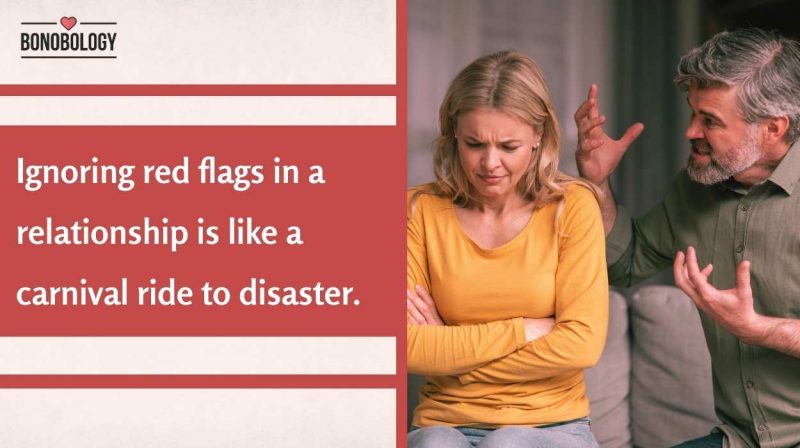


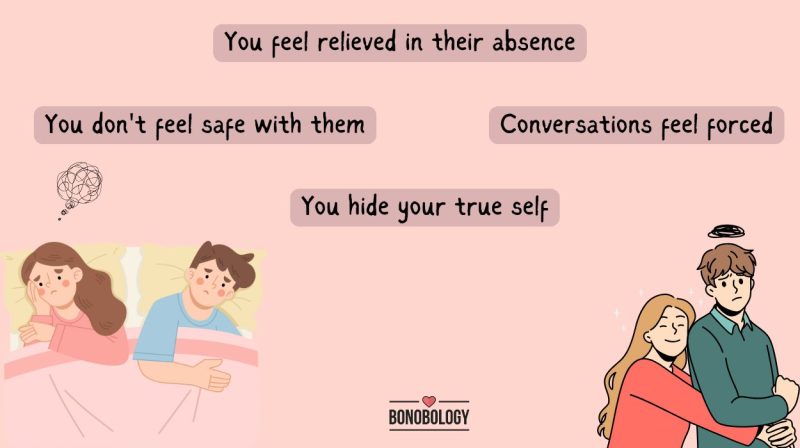




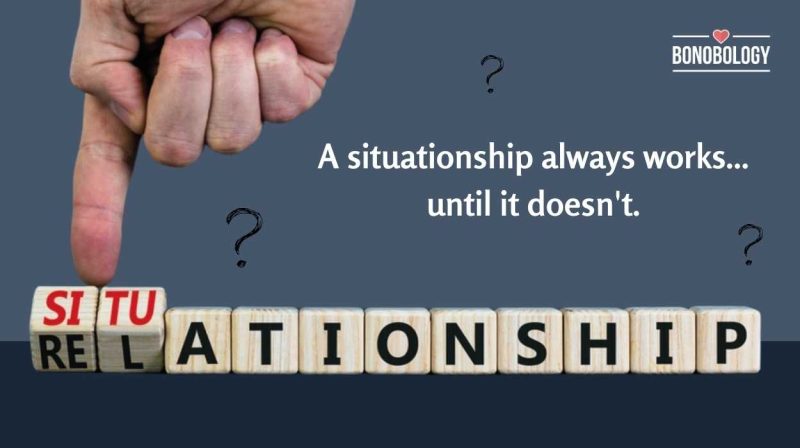

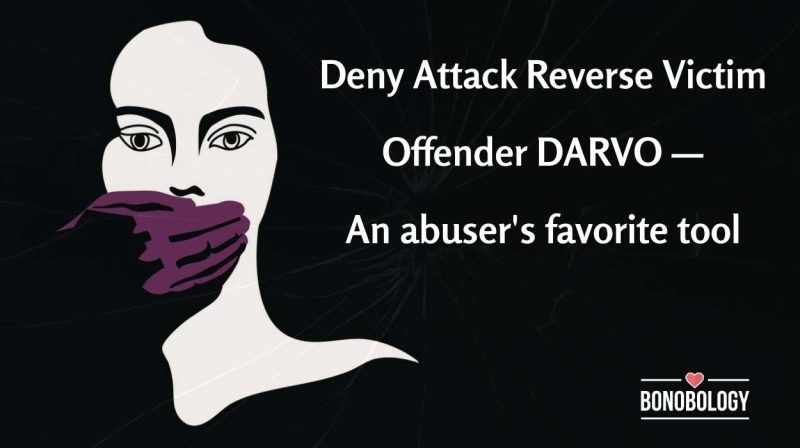
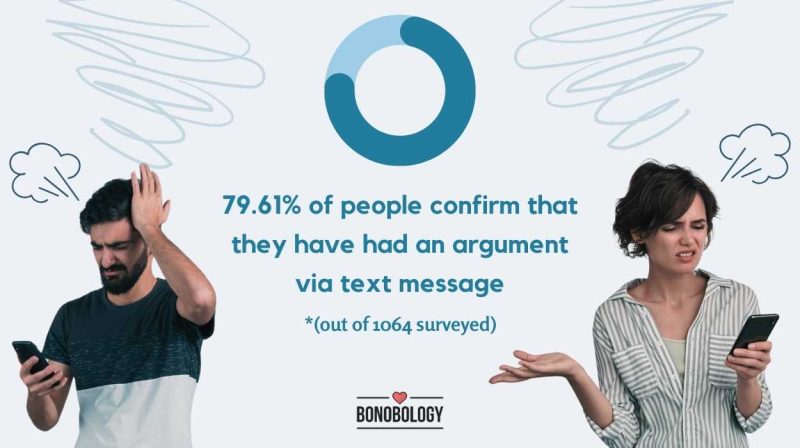
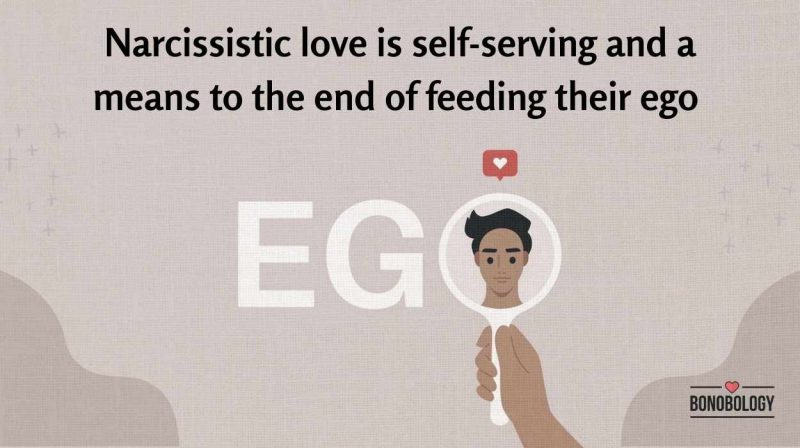
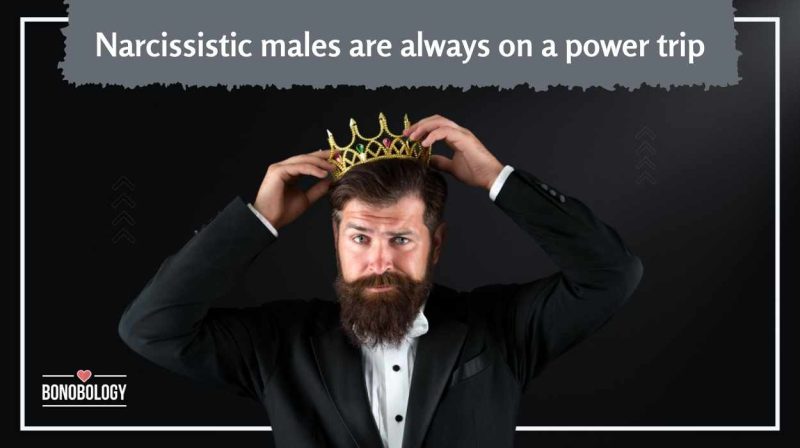
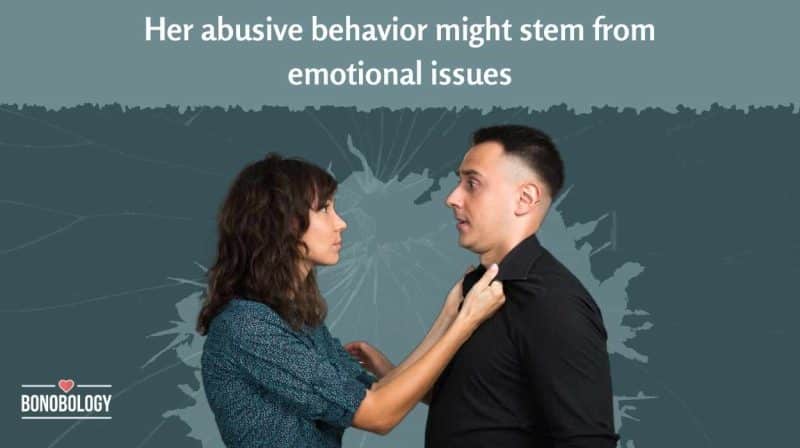
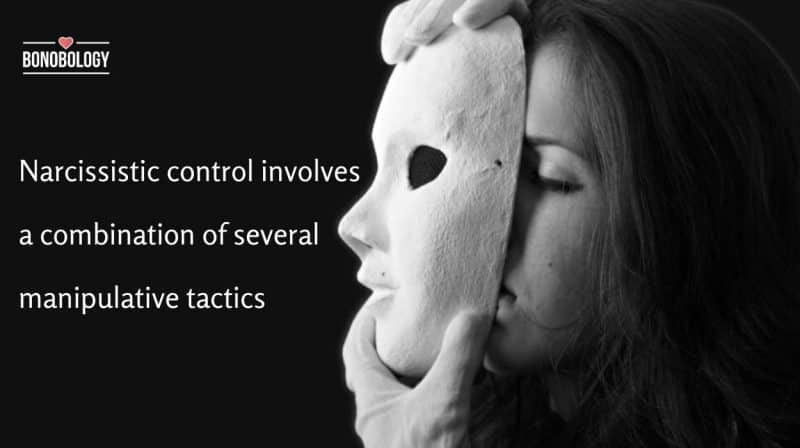
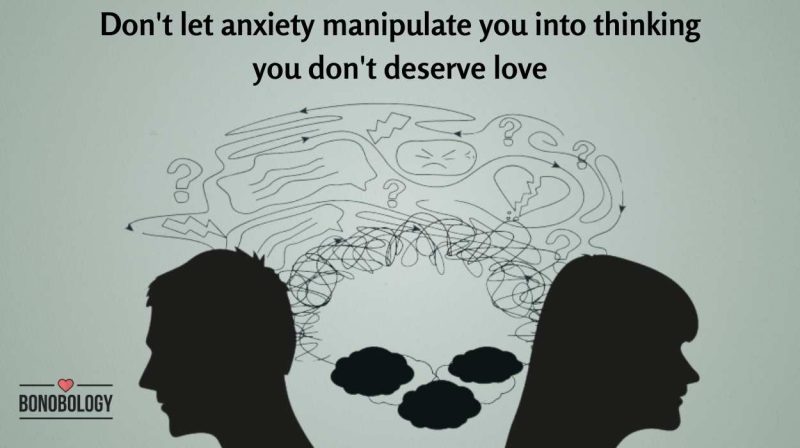
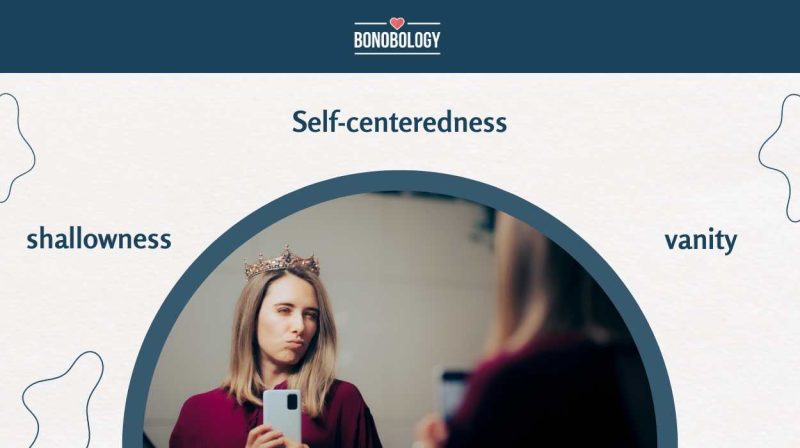
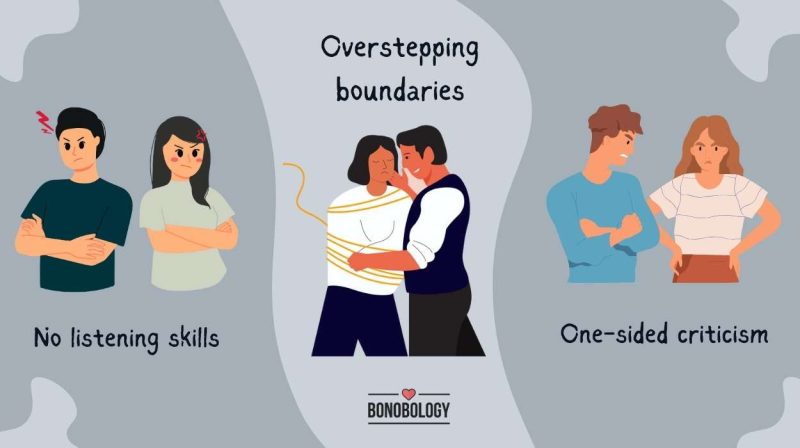
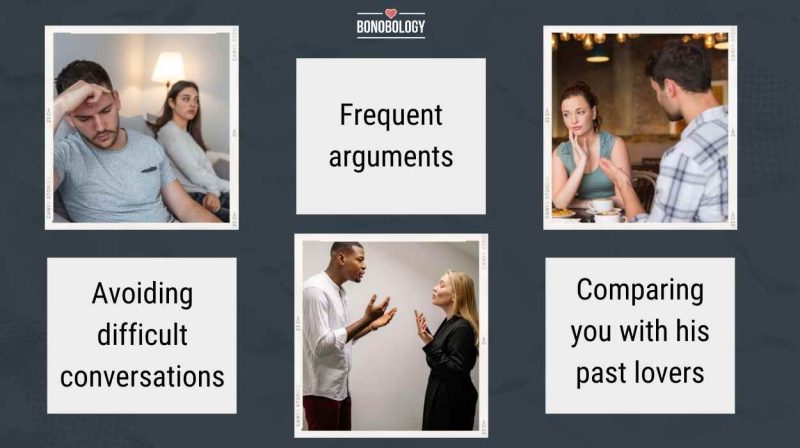
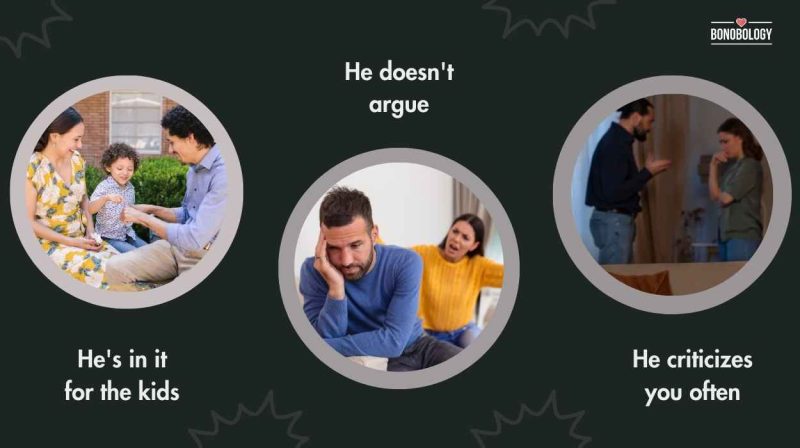
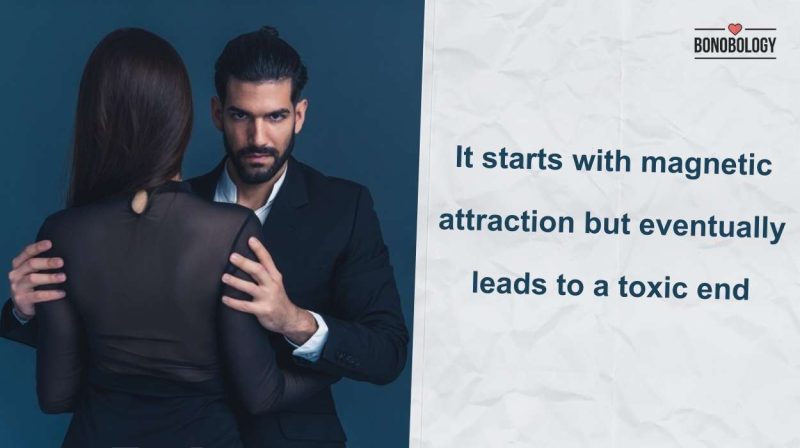
Featured
13 Signs Of A Hot And Cold Relationship & How To Break The Pattern
21 Subtle Signs You’re Not Really In Love With Your Partner
I Hate My Girlfriend: Why You Feel This Way And What To Do
When Health Challenges Affect Your Relationship Dynamics
5 Harsh But True Signs He’ll Never Marry You
21 Signs That You Are Alone In A Relationship
11 Situationship Red Flags You Should Know About
Why Do I Get Attached So Easily? 9 Possible Reasons and Ways to Stop
How To Respond To DARVO: Expert Lists 7 Strategies
What Is Fexting, And Why Is It Bad For Your Relationship?
Are Narcissists Capable Of Love?
11 Prominent Male Narcissist Traits to Watch For
Why Does My Girlfriend Hit Me? Expert Shares 11 Possible Reasons And Ways To Cope
How Does A Narcissist React When They Can’t Control You?
“My Anxiety Is Ruining My Relationship”: 6 Ways It Does And 5 Ways To Manage It
13 Distinctive Traits Of Female Narcissists Revealed
What Are The Examples Of Narcissistic Behavior In A Relationship?
11 Signs He Is Forcing Himself To Love You
21 Signs The Relationship Is Over For Him and How To Deal With It
21 Stages Of A Narcissistic Relationship With An Empath